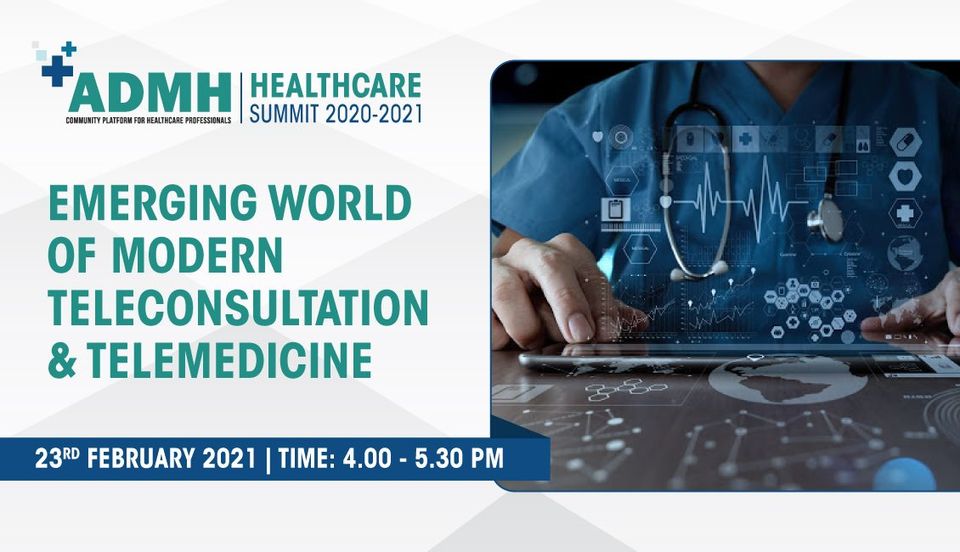As technology and digital media continues to transform every industry and sector, the healthcare industry has also experienced a paradigm shift in the way health and wellness is being made accessible.
Telemedicine refers to the practice of caring for patients remotely when the provider and patient are not physically present with each other. Modern technology has enabled doctors to consult patients by teleconsultation way.
ADMH Healthcare Summit 2021 on ‘Emerging World of Modern Teleconsultation & Telemedicine’ was held on 23rd February 2021 and saw a gathering of leading experts in the healthcare field.
The engaging virtual event aimed to examine how telemedicine and teleconsultations transforming healthcare services and how the infusion of innovative teleconsultation technologies in healthcare opens up myriad opportunities for research, employment, and economic growth.
The panel discussion was moderated by Jashanjeet Singh, Chief Operating Officer, Lokmanya Hospitals and comprised of Dr Shailesh Hadgaonkar, Founder & Director of Asian Ortho- Spine Clinic, Pune, Dr Aloke Mullick, Group CEO, Omni Hospitals, Dr Prasad Bhukebag, Consultant Laparoscopic Gastrointestinal, Bariatric, Hernia & General Surgeon and Dr Nilesh Junankar, Director – Advanced Laparoscopy and Colorectal Surgery Unit, Junankar Hospital, Nagpur.
There was also a Keynote Address by Baljit Singh Bedi, Chief Operating Officer of Telemedicine Society of India.
Bedi elucidated, “While the trend of telemedicine had already started in advanced countries, in India many patients have been forced to come to the bigger cities to visit the hospitals. The technology was emerging, so why not focus first on having futuristic attention on this?”
He continued, “Telemedicine is very versatile technology; the question is how can we innovate further to help people who do not have resources”.
Dr Nilesh Junankar, Director – Advanced Laparoscopy and Colorectal Surgery Unit, Junankar Hospital, Nagpur, poignantly emphasised, saying “There are only two categories of doctors in the future – doctors who know telemedicine and doctors who do not know telemedicine.”
Speaking about the challenges he foresees in the area of telemedicine, Dr Prasad Bhukebag, Consultant Laparoscopic Gastrointestinal, Bariatric, Hernia & General Surgeon said, “Data is the new oil, everyone wants data. Telemedicine will have a lasting impact on every branch of medicine, however, in branching such as surgery will take more time in telemedicine”.
Explaining how telemedicine has evolved and what needs to be done in the future, Dr Aloke Mullick, Group CEO, Omni Hospitals said, “COVID has changed telemedicine because the government introduced laws which made it legal”.
He continued, “There should be a set of government standards and a regulatory authority to enforce data compliance. Telemedicine is here to stay, it will become mainstream, but data security is a major issue and the government needs to introduce policy accordingly”.
Dr Shailesh Hadgaonkar, Founder & Director of Asian Ortho- Spine Clinic, Pune, added, “Telemedicine is a good application for the future, but there are reasons for caution. We must clearly understand the clinical implications”.







